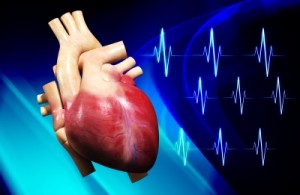 With each passing year, I encounter more and more seniors with a condition called Atrial Fibrillation (A-Fib). In fact, just this month I have two new clients: an 87-year-old male and a 76-year-old female, who suffer from A-Fib. I monitor their blood pressure before, during and after exercise. Most lay people are not as familiar with this condition unless they or a loved one suffer from it. As an exercise professional, it is my responsibility to understand such conditions and consult with other healthcare professionals prior to starting an exercise program. This pertains to A-Fib as well as other possible healthcare conditions that could be life threatening.
With each passing year, I encounter more and more seniors with a condition called Atrial Fibrillation (A-Fib). In fact, just this month I have two new clients: an 87-year-old male and a 76-year-old female, who suffer from A-Fib. I monitor their blood pressure before, during and after exercise. Most lay people are not as familiar with this condition unless they or a loved one suffer from it. As an exercise professional, it is my responsibility to understand such conditions and consult with other healthcare professionals prior to starting an exercise program. This pertains to A-Fib as well as other possible healthcare conditions that could be life threatening.
For the person newly diagnosed with A-Fib, here are some tips:
Getting Started
• Talk with your cardiologist about integrating regular exercise into your treatment plan.
• Take all medications as recommended by your physician.
• The goals of your program should be to improve your fitness and ability to perform activities of daily living, increase muscle strength and endurance, improve range of motion and reduce your risk of injury.
• Choose activities that can be done continuously and involve large muscles groups. If your fitness level is low, start with shorter sessions (10 to 15 minutes) and gradually build up to 30 to 45 minutes, three or more days per week.
• Perform low-resistance, high-repetition, strength training exercises three days per week and whole-body range of motion exercises three to five days per week.
• Take frequent breaks during activity if needed. Your workouts should be comfortable and not strained.
Exercise Cautions
• If you also have ischemic heart disease, chronic heart failure or valvular heart disease, the exercise program considerations for these conditions should take precedence over those for Atrial Fibrillation.
• Atrial Fibrillation can be intermittent, which means your heart rhythm may be normal one day and irregular the next. It is a good idea to adjust how hard and how long you exercise based on how you feel and be aware that some days you may feel more fatigued and have a lower tolerance for exercise.
• Stop exercising immediately and contact your physician, if you experience chest pain, labored breathing or extreme fatigue.
Your exercise program should be designed to maximize the benefits with the fewest risks of aggravating your health or physical condition. Consider contacting us, certified health and fitness professionals, at 818-620-1442 for an assessment. We can work with you and your health care provider to establish realistic goals and design a safe and effective program that addresses your specific needs.
Best of luck,
Lori P. Michiel, NASM-CPT
Photo credit: dream designs
